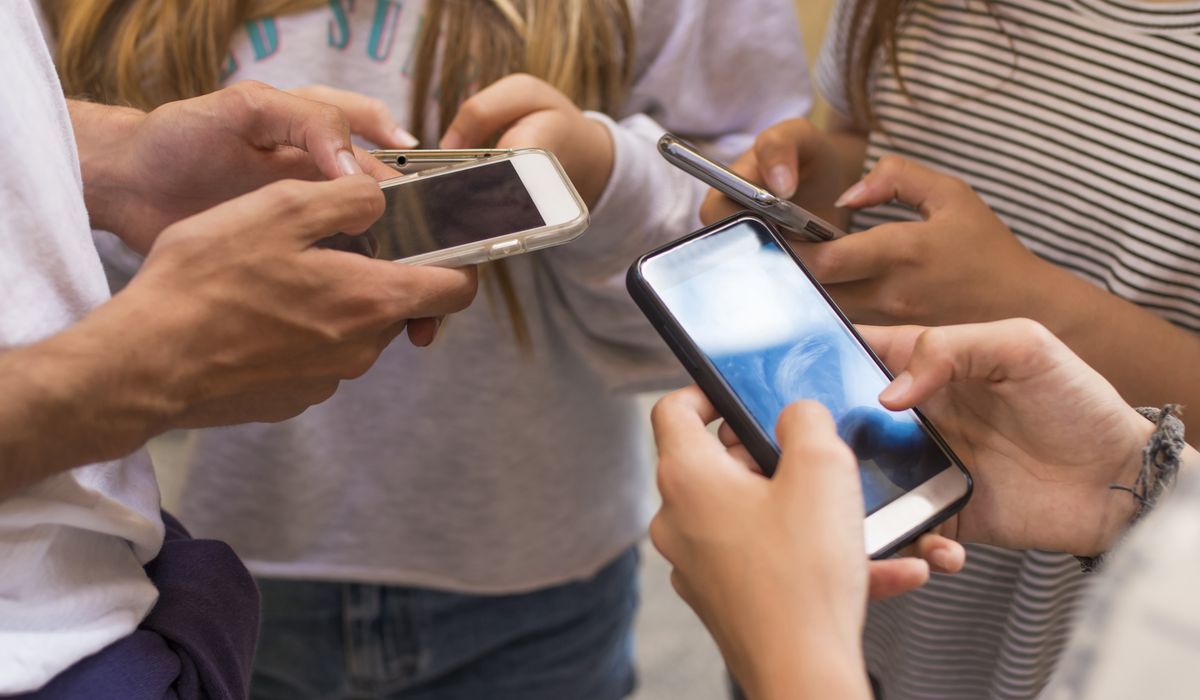
This article was originally published on Washington times - National. You can read the original article HERE

Half of all adolescents between 12 and 17 have used digital screens for at least four hours a day since the pandemic, the Centers for Disease Control and Prevention said Wednesday.
The findings from the CDC’s National Center for Health Statistics add to a growing laundry list of research showing the negative impacts of digital addiction on teen sleep habits, fatigue, anxiety and depression.
Researchers based their estimate on a nationally representative web survey they administered between July 2021 and December 2023. Statistician Ben Zablotsky, lead author of the report, said it was the first time the CDC questioned teens directly rather than relying on parental reports.
“We launched [it] to hear directly from teenagers, because we knew parents struggle to accurately report behaviors of their teenagers that they may not be able to directly observe,” Mr. Zablotsky said in an email.
The survey asked adolescents: “On most weekdays, how many hours do you spend a day in front of a TV, computer, cellphone or other electronic device watching programs, playing games, accessing the internet, or using social media?”
Excluding time spent on schoolwork, survey participants had the following response options: “Less than 1 hour; 1 hour; 2 hours; 3 hours; 4 or more hours.”
The survey found that 50.4% of the age group reported using screens at least four hours a day, which the CDC classifies as “high screen use.”
Another 22.8% reported three hours of daily screen use, 17.8% said two hours, 6.1% said one hour and 3% said less than an hour.
Black teenagers were the most likely to report high screen use, with 60.4% saying they stared at screens for four hours or more each day. Teens in urban areas were also more likely than those in rural areas to report high use.
More than 1 in 4 teens with four hours or more of daily screen time reported experiencing anxiety (27.1%) or depression symptoms (25.9%) in the two weeks before they completed the survey.
“Teenagers who reported high screen use were more likely to experience both anxiety and depression symptoms over the past two weeks,” Mr. Zablotsky said.
The study comes as public health officials have flagged increased screen time since the pandemic as a public health crisis threatening teen academic performance, mental health and decision-making skills.
Multiple studies have found post-pandemic teens more likely than previous generations to spend their free time scrolling through social media websites alone in their rooms, and less likely to indulge in social risks such as promiscuous sex or tobacco.
Keith Humphreys, a Stanford University psychologist and addiction researcher who was not involved with the CDC report, said smartphones have made it harder for young people to focus on their work, studies and relationships.
“The point is we know that kids pay attention less and learn less with them in schools, so we can respond effectively to that whether we think they are addictive or not,” Mr. Humphreys said in an email.
Teachers have warned that most K-12 students now use their phones more for pornography, cyberbullying and online shopping than for texting with mom.
Last year, Florida became the first state to pass a law banning cellphones during class time. Over a dozen states from Alabama to Connecticut have since followed suit as part of a growing bipartisan consensus that screen time damages young people mentally and emotionally.
On Sept. 23, California Gov. Gavin Newsom, a Democrat, signed a law that requires every public school district, charter school, and county education office in the state to either limit or prohibit smartphones by July 2026.
That came after Virginia Gov. Glenn Youngkin, a Republican, signed an executive order in July that went further. It requires all public schools to implement “bell-to-bell” bans by January 1.
In a Pew Research Center survey released this month, 65% of parents with school-aged children said they supported banning phones during class time. Many cited concerns about learning disruptions and cyberbullying.
Yet only 36% endorsed depriving students of smartphones for the entire school day, arguing that bell-to-bell restrictions are too difficult to enforce and deprive students of essential parental contact.
To address that concern, Virginia officials cite psychological research showing that phones remain a distraction in students’ pockets or bags. They are directing schools to have students deposit their phones in magnetically sealed pouches or lockers throughout the school day, leaving them free to learn without distraction.
“Parents, teachers, and even some students, were very outspoken on wanting to see phones removed from schools bell-to-bell, and their opinions are backed up by research as well,” Todd Reid, assistant superintendent for strategic communications at the Virginia Department of Education, said in an email. “That is what our guidance initiates: removing phones from schools from the first bell of the day through the last bell for dismissal.”
This article was originally published by Washington times - National. We only curate news from sources that align with the core values of our intended conservative audience. If you like the news you read here we encourage you to utilize the original sources for even more great news and opinions you can trust!










Comments